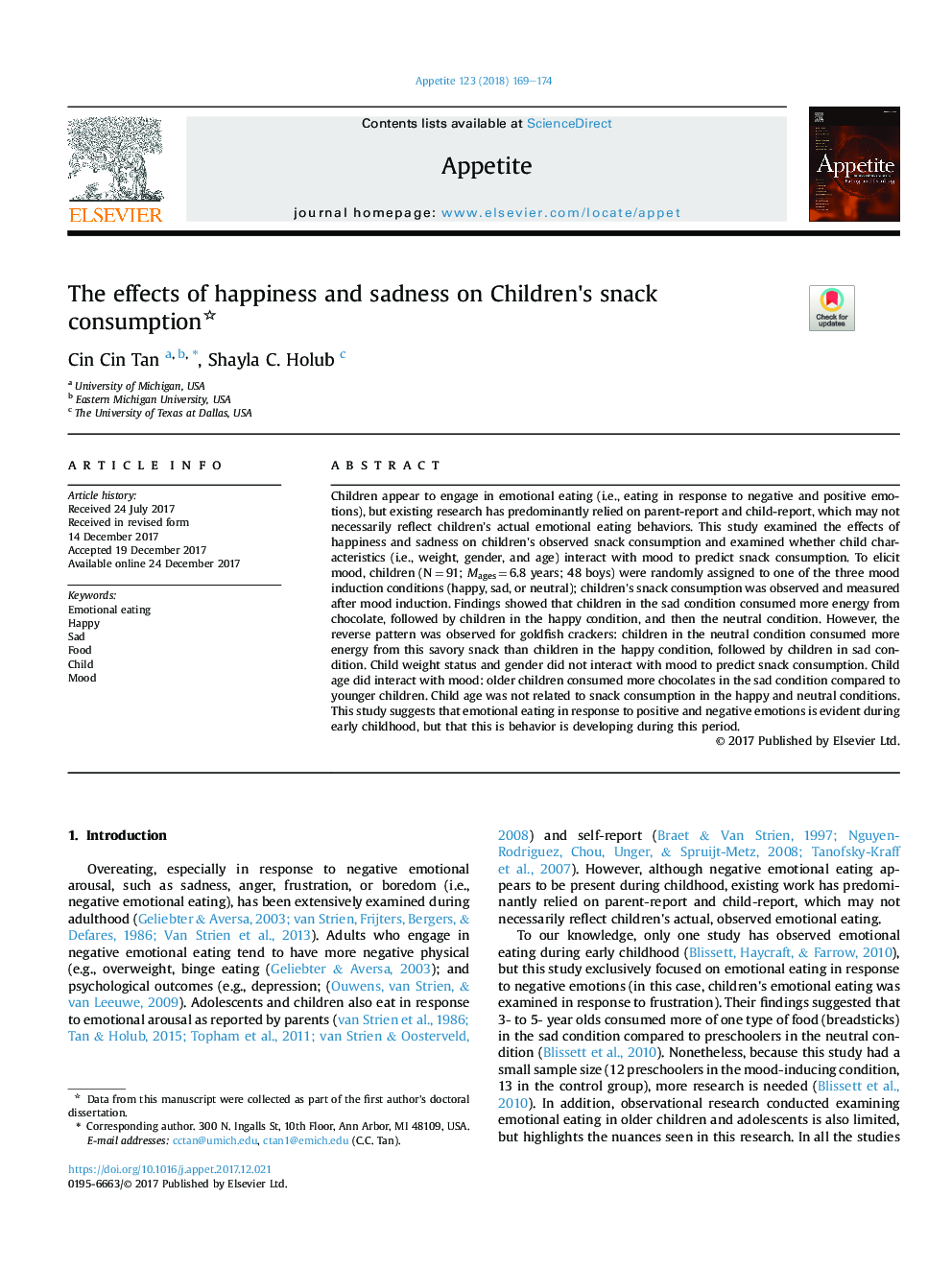| کد مقاله | کد نشریه | سال انتشار | مقاله انگلیسی | نسخه تمام متن |
|---|---|---|---|---|
| 7306076 | 1475357 | 2018 | 6 صفحه PDF | دانلود رایگان |
عنوان انگلیسی مقاله ISI
The effects of happiness and sadness on Children's snack consumption
ترجمه فارسی عنوان
اثرات شادی و غم و اندوه در مصرف میان وعده کودکان
دانلود مقاله + سفارش ترجمه
دانلود مقاله ISI انگلیسی
رایگان برای ایرانیان
کلمات کلیدی
خوردن احساسی، خوشحال، غمگین، غذا، کودک، حالت،
موضوعات مرتبط
علوم زیستی و بیوفناوری
علوم کشاورزی و بیولوژیک
دانش تغذیه
چکیده انگلیسی
Children appear to engage in emotional eating (i.e., eating in response to negative and positive emotions), but existing research has predominantly relied on parent-report and child-report, which may not necessarily reflect children's actual emotional eating behaviors. This study examined the effects of happiness and sadness on children's observed snack consumption and examined whether child characteristics (i.e., weight, gender, and age) interact with mood to predict snack consumption. To elicit mood, children (Nâ¯=â¯91; Magesâ¯=â¯6.8 years; 48 boys) were randomly assigned to one of the three mood induction conditions (happy, sad, or neutral); children's snack consumption was observed and measured after mood induction. Findings showed that children in the sad condition consumed more energy from chocolate, followed by children in the happy condition, and then the neutral condition. However, the reverse pattern was observed for goldfish crackers: children in the neutral condition consumed more energy from this savory snack than children in the happy condition, followed by children in sad condition. Child weight status and gender did not interact with mood to predict snack consumption. Child age did interact with mood: older children consumed more chocolates in the sad condition compared to younger children. Child age was not related to snack consumption in the happy and neutral conditions. This study suggests that emotional eating in response to positive and negative emotions is evident during early childhood, but that this is behavior is developing during this period.
ناشر
Database: Elsevier - ScienceDirect (ساینس دایرکت)
Journal: Appetite - Volume 123, 1 April 2018, Pages 169-174
Journal: Appetite - Volume 123, 1 April 2018, Pages 169-174
نویسندگان
Cin Cin Tan, Shayla C. Holub,
